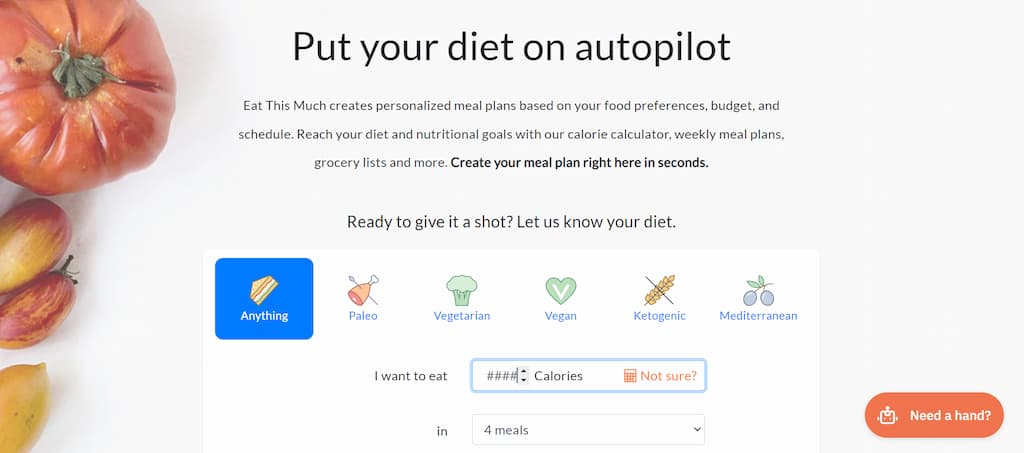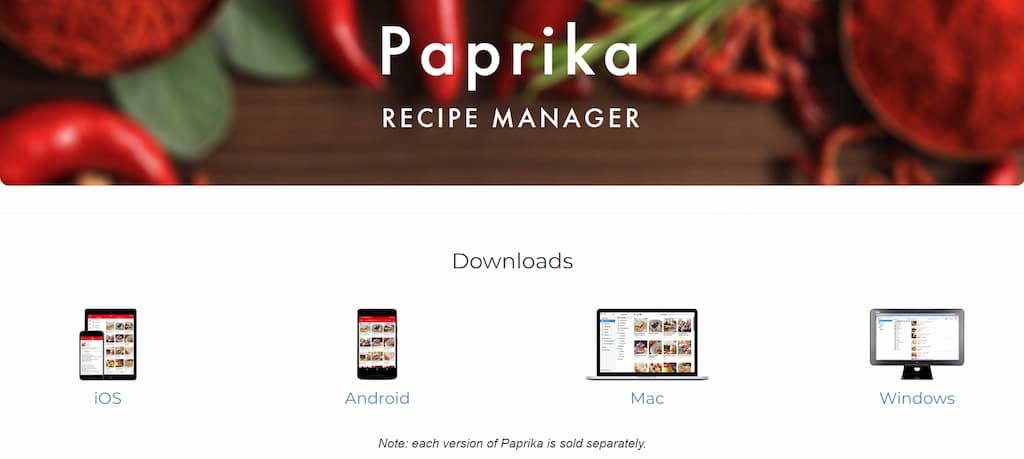In today’s fast-paced world, meal planning has emerged as a vital tool for individuals striving to maintain a balanced diet, save time, and minimize food waste. However, crafting a meal plan that caters to personal tastes, dietary restrictions, and nutritional needs can be a daunting task.
Enter the era of Artificial Intelligence (AI) meal planners, a groundbreaking solution that promises to revolutionize the way we approach meal planning. By leveraging advanced technologies such as machine learning and natural language processing, AI meal planners offer personalized, nutritionally balanced meal plans at the click of a button.
This article delves into the best AI meal planners on the market, exploring how they assist users in navigating the complexities of dietary management, the benefits they offer, and essential considerations for those looking to integrate AI into their meal planning routine.
Understanding AI Meal Planners
Definition and How They Work
AI meal planners are digital tools designed to simplify the process of creating meal plans tailored to individual preferences and nutritional needs. By utilizing machine learning and natural language processing, these planners can analyze a user’s dietary preferences, restrictions, and health goals to generate customized meal plans. Simply put, users input their food likes, dislikes, and any dietary constraints they have, and the AI algorithm crafts a meal plan that fits their specific requirements, ensuring a balanced intake of nutrients.
The Evolution of AI in Meal Planning
The journey of meal planning tools has transitioned from one-size-fits-all solutions to highly personalized dietary guidance, thanks to advancements in AI technology. Initially, meal planning was a manual and time-consuming task, often requiring extensive nutrition knowledge to ensure balanced diets. However, with the integration of AI, these tools have become capable of offering personalized recommendations, considering factors such as caloric intake, macronutrient distribution, and even the user’s schedule and lifestyle. This evolution signifies a move towards more user-centric, efficient, and scientifically informed meal planning.
Benefits of Using AI Meal Planners
Personalization
One of the most significant advantages of AI meal planners is their ability to personalize meal plans. Unlike traditional meal planning tools that might offer generic plans, AI systems take into account individual preferences, allergies, and specific health goals, such as weight loss, muscle gain, or managing health conditions. This high level of customization ensures that users are more likely to stick to their meal plans and achieve their dietary goals.
Convenience and Time Saving
AI meal planners automate the once tedious task of meal planning. With just a few clicks, users can have a weekly meal plan generator, complete with recipes and grocery lists. This not only saves time but also the mental effort of deciding what to eat each day. It simplifies grocery shopping, as the generated lists are precise, helping to avoid unnecessary purchases.
Nutritional Accuracy
Ensuring that meal plans meet nutritious diet requirements is essential for health and well-being. AI meal planners use detailed databases and algorithms to calculate the nutritional content of each meal, ensuring that users receive a balanced diet. This is especially beneficial for those with specific nutritional goals or dietary needs, as it takes the guesswork out of meal preparation.
Waste Reduction
By providing grocery lists tailored to the meal plan, AI meal planners help in reducing food waste. Users buy only what they need for the meals planned, which means less food is likely to be thrown away. This not only benefits the environment but also helps users manage their food budgets more effectively.
AI meal planners represent a leap forward in making healthy eating more accessible and manageable. By harnessing the power of technology, these tools offer personalized meal plans, convenient, and nutritious diet planning solutions that cater to the unique needs and preferences of each user.
The Best AI Meal Planners on the Market
Before we delve into our top picks, let’s briefly outline the criteria used to evaluate these AI meal planners:
- User Satisfaction: High ratings and positive reviews from users who have experienced tangible benefits.
- Personalization Capabilities: The ability to tailor meal plans according to individual dietary needs, preferences, and goals.
- Ease of Use: Intuitive interfaces that make meal planning and grocery shopping a breeze.
PlateJoy

PlateJoy stands out for its deep personalization, integrating with fitness trackers and offering meal plans tailored to specific health goals, dietary preferences, and even pantry inventory. Its comprehensive approach ensures users receive meal plans that are not only nutritious but also aligned with their lifestyle.
Eat This Much

Focused on automatic meal planning, Eat This Much generates daily and weekly meal plans based on caloric intake and nutritional goals. It supports a wide range of diets, from vegetarian to ketogenic, making it versatile for a broad audience.
Paprika Recipe Manager

Though not strictly an AI-driven platform, Paprika helps users organize recipes, plan meals, and create grocery lists. Its user-friendly design and robust feature set make it a favorite among home cooks looking for an efficient way to manage their kitchen.
Success Stories of Users
One user shared their experience on how an AI meal planner app helped them transition from eating out frequently to cooking at home, emphasizing the app’s adaptability and its ability to account for previously purchased bulk items. This adaptability made it easier for them to maintain a kitchen full of food, utilize items efficiently, and experience limited waste, all on their own shopping schedule.
Another user pointed out the app’s potential for a broader audience beyond experienced cooks, suggesting that AI meal planner is particularly beneficial for individuals like college students or bachelors who are learning to cook and manage groceries. This user appreciated the app’s ease of use and its ability to simplify meal planning and grocery shopping, making daily life more manageable.
A third user emphasized how these AI tools supported her journey towards healthier eating and streamlined meal planning. She highlighted the app’s features like the grocery checklist and the ability to filter out unwanted foods or focus on specific diets. The user shared a significant personal success story of weight loss during a 30-day cleanse program, demonstrating the impact on her health and lifestyle.
How to Get Started with an AI Meal Planner
Embarking on the journey of AI-assisted meal planning is both exciting and potentially transformative for your dietary habits. Here’s how you can begin this journey effectively:
Choosing the Right AI Meal Planner
- Assess Your Needs: Consider your dietary restrictions, food preferences, health goals, and budget. Whether you’re looking for weight loss, managing a health condition, or simply want to save time, there’s likely an AI meal planner tailored to your needs.
- Compare Features: Look at the personalization features, ease of recipe customization, grocery list integration, and whether the planner can sync with your fitness trackers or dietary apps.
- Check Reviews: User feedback can provide insight into how well an AI meal planner works in real life. Pay attention to comments about usability, customer support, and the accuracy of nutritional information.
- Explore Affiliate Programs: If you’re interested in monetizing your use of an AI meal planner through a blog or social media, check if they offer an affiliate program.
Setting Up and Using an AI Meal Planner
- Sign Up and Customize: Once you’ve chosen a meal planner, sign up and start customizing your preferences. Most AI meal planners will ask about your dietary needs, allergies, food dislikes, and health goals.
- Integration: Take advantage of features that allow you to sync with other apps or devices, like fitness trackers, to get a holistic view of your health and nutrition.
- Plan and Shop: Use the generated meal plans and shopping lists to shop for ingredients. Many AI meal planners offer digital lists that can be checked off as you shop.
Integrating AI Meal Plans into Your Daily Routine
- Be Flexible: While following meal plans, be open to adjustments based on your schedule, mood, or unexpected events.
- Batch Cooking: Consider preparing meals in batches if your schedule is tight. Many AI meal planners suggest recipes that are suitable for batch cooking.
- Track Your Progress: Use the app or a separate tool to track your dietary progress and how well you’re sticking to your meal plans.
Conclusion
AI meal planners are transforming the way we approach nutrition and meal preparation, offering personalized, efficient solutions that cater to individual dietary needs and preferences. By leveraging advanced technologies, these tools not only simplify the planning process but also promote healthier eating habits, save time, and reduce food waste. As we navigate their potential, it’s important to weigh considerations like privacy and the accuracy of dietary information. Ultimately, AI meal planners represent a significant step towards integrating technology with wellness, making the journey to a healthier lifestyle both accessible and engaging.
Frequently Asked Questions
How do AI meal planners personalize meal plans for individual users?
AI meal planners use advanced algorithms to analyze your dietary preferences, restrictions, health goals, and sometimes even your past food consumption patterns. By inputting information such as your age, weight, height, activity level, food likes and dislikes, allergies, and specific dietary needs (e.g., gluten-free, vegan), the AI tool can generate personalized meal plans that cater specifically to your nutritional requirements and personal tastes. This process ensures that the meal plans are not only nutritionally balanced but also aligned with your lifestyle and health objectives.
Can AI meal planners accommodate special diets or health conditions?
Yes, many AI meal planners are designed with the flexibility to cater to a wide range of dietary preferences and health conditions. Whether you are following a keto, paleo, vegetarian, vegan diet, or managing conditions such as diabetes, high blood pressure, or celiac disease, AI meal planners can tailor your meal plans accordingly. These platforms often have extensive food databases and nutritional information, enabling them to adjust recipes and meal suggestions to meet specific dietary guidelines and restrictions.
Are AI meal planners worth the cost?
Determining whether AI meal planners are worth the investment depends on your individual needs, lifestyle, and how much value you place on convenience, nutritional accuracy, and personalized meal planning. For those who struggle with meal planning, have specific dietary goals, or lead busy lives, AI meal planners can be a significant time-saver and a helpful tool in maintaining a nutritious diet. They can also help reduce food waste and save money in the long run by providing precise grocery lists. Many services offer free trials or basic plans, allowing you to test their features before committing to a subscription, making it easier to decide if the cost is justified for your circumstances.